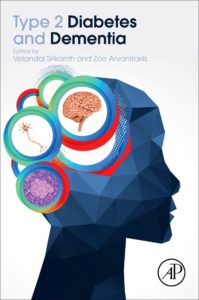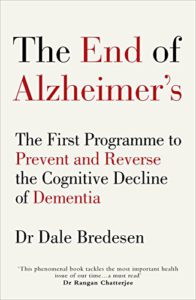Dementia describes a collection of symptoms that are caused by disorders affecting the brain. It is not one specific disease. Dementia affects thinking, behaviour and the ability to perform every day tasks. Brain function is affected enough to interfere with the person’s normal social or working life.
The hallmark of dementia is the inability to carry out everyday activities as a consequence of diminished cognitive (thinking) ability.
People with dementia may have difficulty solving problems and controlling their emotions. They may experience personality changes, agitation, delusions or hallucinations.
The exact symptoms experienced by a person with dementia depend on the areas of the brain that are damaged by the disease causing the dementia. With many types of dementia, some of the nerve cells in the brain stop functioning, lose connections with other cells, and die.
Dementia is usually progressive. This means that the disease gradually spreads through the brain and the person’s symptoms get worse over time.
Some of the most common types of dementia are:Alzheimer’s disease ,Vascular dementia,Lewy Body disease,Fronto-temporal dementia and Early Onsetdementia.
Research has shown that diabetes can increase the risk of developing both Alzheimer’s disease and vascular dementia. This is thought to be because the mechanisms behind diabetes development can damage small blood vessels in the brain, which is likely to contribute towards vascular dementia.
It is also thought that diabetes-related blood vessel damage could lead to a reduced blood flow to the brain, which may be a factor in Alzheimer’s disease development.Making a conscious effort to maintain healthy blood sugar levels now could pay dividends in the future by reducing your risk of being stricken with Alzheimer’s or another form of dementia.
The key characteristics found in the development of heart disease and stroke — clogged arteries and inflammation in cells also affect the brain.What is good for the reduction of diabetes risk is also good for reduction of the risk of cognitive impairment.
Research studies indicate that those who receive education to better control their diabetes — within the established guidelines for normal diabetes control had better blood sugar control and slower cognitive decline compared with those who did not have the intervention.
There is no known cure for any type of dementia, and medications can’t prevent the condition or reverse the brain damage it causes. However, various drugs can provide some symptom relief.
The two most commonly prescribed medicines for dementia are cholinesterase inhibitors and memantine (Namenda). Doctors use them mainly to treat the symptoms of Alzheimer’s disease, which is the most common kind of dementia. They prescribe them for other kinds of dementia as well.
There are currently five prescription drugs that have been developed for Alzheimer’s disease (AD) that can delay and slow the progression of dementia in patients with AD. Four of these drugs are called cholinesterase inhibitors, and are usually known by their brand names:
Aricept®
Exelon®
Razadyne® (formerly known as Reminyl®)
Cognex® (no longer actively marketed)
They work by preventing the breakdown of a brain chemical called acetylcholine, and are usually only effective in mild to moderate cases of dementia. Because these will only work for a limited time to delay symptoms, it is important to start treatment as early as possible for maximum effect, which is why early diagnosis is so critical.
There is also a fifth drug, Namenda®, which is used to treat moderate to severe cases of dementia and works by an entirely different mechanism. It regulates another brain chemical called glutamate and helps to prevent cell death, but as in the other four drugs it can only delay the progression of the dementia and cannot “cure” it. Namenda® may be used in conjunction with any of the four cholinesterase inhibitors.
Drugs used for dementia are limited by side effects, short duration of action, and the need for frequent monitoring of blood levels or other laboratory values to prevent toxicity.
Natural Treatments For Dementia
The End of Alzheimer’s: The First Programme to Prevent and Reverse the Cognitive Decline of Dementia
Dementia is partially a lifestyle-related disease and obesity, lack of exercise, smoking and excessive drinking are risk factors both for dementia and type 2 diabetes.
Cognitive decline is associated with inflammation so it is critical to avoid highly inflammatory foods. Highly inflammatory foods include refined sugars and grains, food additives and preservatives, GMO foods, and foods with pesticides .
Specifically, eating fish and leafy green vegetables (for example, spinach, kale, and romaine lettuce) and cruciferous vegetables (for example, broccoli and cauliflower) has a positive effect.

A colourful diet is also important because fruits and vegetables that are high in color often contain chemicals called antioxidants that help protect cells from damage.
For more great Health and Nutrition Tips refer to the website positivehealthwellness.com.
Certain dietary supplements have shown some benefit in improving cognitive function and slowing the effects of dementia. If you plan on taking these supplements, let your doctor know first.
Your doctor can advise you on safe dosages or potential interactions with medications or other supplements.
Omega-3 is certainly one of the more popular options in natural remedies for dementia. Studies have shown that taking 1,700 mg DHA and 600 mg EPA helps ease brain inflammation, which helps slow dementia.
Vitamin B deficiencies have been associated with cognitive decline. Taking 1000 mcg per day either alone or as part of a vitamin B complex helps lower homocysteine levels, which might help improve symptoms of dementia.
Vitamin D deficiency increases the risk of dementia and diabetes, studies have claimed.
You can increase your vitamin D levels by getting sensible sun exposure, and by eating more vitamin D-rich foods.Dosages of 1000-5000IU a day could have a positive effect on cognition.
Low levels of vitamin E have been linked to memory problems. Using 400 to 700 IU each day might produce beneficial results for improving memory.
A 2014 study showed that taking 2000 IU per day slowed cognitive decline in people with mild to moderate Alzheimer’s disease. For the best results, use supplements with alpha-tocopherol, which is vitamin E in its natural form.
Low levels of zinc have been linked to a higher risk of dementia. Taking 25 to 30 mg of zinc per day might lead to improved cognition.
Regular moderate exercise can reduce the risk of Type 2 diabetes by half. Moreover, efforts to reduce abdominal fat may reduce the rate of cognitive decline, since carrying significant belly fat raises the risk of late-onset Alzheimer’s disease in both middle-aged and elderly people.
While additional research is required, studies have demonstrated that mental exercises, such as puzzles and brain training games may assist in slowing the progression of cognitive issues, such as memory loss and thinking skills.
Popular brain exercises include Sudoku, crossword puzzles, and Lumosity (a website that offers cognitive games). Other brain exercises that might be helpful include playing board games , card games and reading books.
Individuals with dementia may benefit from massage therapy . Where massage therapy stimulates movement and the flow of blood and lymph in the body,
Massage therapy provides the opportunity for touch and the release of stress, depression, and pain that may underlie many of the behavioral and psychiatric problems that can arise in individuals with dementia.
Art and music therapy or aromatherapy, may help individuals with dementia remember and experience memories more fully through the use of familiar colors, sounds, and smells.
In addition, the use of particular essential oils might help persons with dementia to relax. For instance, there has been research that associates the use of lavender oil with the reduction of aggressive behavior.
Did you know that certain jobs could protect against Alzheimer’s?Humans are social creatures, and working directly with other people instead of primarily with data or things seems to offer protection against Alzheimer’s.
Researchers found that those who worked closely with people in complex work situations were able to tolerate brain damage better than those who worked in more isolated settings. Those who worked in more social settings, examples may include teachers and doctors, seem to be able to better maintain cognitive function.
If you work in isolation and can’t do much to change that, take extra steps to be as social as possible after work hours and on your days off to make your brain more resilient.
Living a life full of purpose, including having a sense of direction, could help to prevent dementia.Find something that makes you happy, or something you’re passionate about.
Researchers uncovered an interesting connection between a person’s sense of purpose and dementia risk.Study participants who reported the highest scores on the life purpose test were 2.4 times less likely to develop Alzheimer’s compared to people with the lowest scores.
By taking measures to reduce your risk of Type 2 diabetes, leading a healthy lifestyle by maintaining a healthy weight, staying active, reducing your alcohol intake and not smoking, and managing conditions such as high blood pressure and cholesterol are also potentially helping to reduce your risk of developing dementia.
We know that not all cases of dementia can be prevented through risk reduction, but reducing those that we can will be enormously beneficial.
Managing Dementia and Diabetes Together
Dementia guide for Carers and Care Providers
Diagnosing diabetes early in people who already have dementia will ensure they receive regular review and management of the risk factors that can lead to developing diabetes damage. Complications are identified quickly and treated as required.
If necessary, medications can be started to relieve the symptoms of high blood glucose which will improve quality of life(e.g. reduce tiredness, frequency of urination, thirst) and avoid hospital admissions for very high blood glucose levels.
Scientists at Lancaster University examined the diabetes drug Victoza as a potential Alzheimer’s therapy. Victoza falls into a class of drugs designed to stimulate natural insulin production for Type 2 diabetics. But researchers believed it could also prevent the buildup of beta-amyloids on brain cells.
They injected Victoza into mice suffering from late-stage Alzheimer’s. After two months, the drug had reduced beta-amyloid plaques on the brain by 30 percent. And it actually protected brain cells from damage. These results have led to clinical trials to determine if the drug has the same effect on humans.
Research has clearly established a strong connection between dementia and blood sugar disorders such as insulin resistance and diabetes. The link is so clear that Alzheimer’s disease is often referred to as type 3 diabetes. A great strategy to improve blood sugar levels is to implement the ketogenic diet and lifestyle.
Glucose and insulin mechanisms in the brain are impaired when an individual has dementia . The brain has difficulty burning glucose for fuel which can lead to sluggish brain activity, brain shrinkage, and even death of brain cells.
The ketogenic diet may slow or reverse symptoms of dementia by providing an alternative fuel source. While brain glucose utilization declines in dementia, ketone body utilization does not.
The ketogenic diet can benefit brain health through numerous mechanisms including increasing ketone body levels, reducing brain glucose consumption, lowering insulin, altering insulin signaling, increasing long- and medium chain-fatty acids and reducing inflammation.
We all have heard of the mind-body effect. Well, there is also a body-mind effect. So you can impact your brain through your diet and heal your body.Balance your blood sugar with a whole-foods, low-glycemic diet.
You can achieve this by taking out the bad stuff (refined carbs, sugar, alcohol, caffeine and processed foods) and putting in the good stuff (healthy fats like avocados, walnuts, almonds and cashews and eggs, olive and coconut oil).
Greek omelette This is like a flavour explosion and is packed with all of my favourite things.
SERVES 1 4 handfuls of baby spinach 2–3 tsp olive oil 2 large eggs a few small sprigs of dill 1 tbsp pitted kalamata olives, chopped 60g feta cheese Sauté the spinach in a little of the oil, until it wilts. Set aside. Pour the remaining oil into an omelette pan. Lightly beat the eggs and pour them into the pan. Once the eggs are almost completely cooked, spread the spinach across the middle. Add the dill and olives, crumble over the feta, and fold the omelette. Cook for another two or three minutes to soften the cheese before turning out on to a plate.
Chronic stress takes a toll on your body and brain. Relaxation isn’t a luxury if you want to prevent or reverse dementia and Type 2 diabetes. Whether that involves deep breathing, or prayer, find something that helps you calm down.
Studies show poor sleep becomes a risk factor for cognitive decline and Type 2 diabetes. Aim for at least 8 hours of quality sleep every night.
Daily management of diabetes involves maintaining a careful balance between food, medicine and physical activity. The symptoms of dementia make this increasingly difficult.
In the early stages of dementia people may still be able to manage their self-care tasks by following simple, regular routines and using written reminders and other strategies.
Over time, an increasing number of these management tasks may need to be done by others.When supporting a person to complete tasks ask their permission to assist them and, where possible,support them in doing things themselves.
Even when a person cannot complete a task by themselves, they can still be involved to some degree. For example, they may be able to do their own finger prick test with supervision or observe and discuss testing done by someone else.
It may be difficult for the person with dementia to accept the help of other people. The person may not remember or understand why they need a finger prick test or an injection and they may become fearful of these being done.
To deal with resistance to assisting with diabetes care, begin by validating the person’s feelings, stay calm and explain what you are doing and why it is important. If the person becomes upset or distressed wait until they calm down before you approach them for the task again.
People with diabetes need to achieve a reliable method of taking their medicines to avoid diabetes complications. If someone you are supporting is having difficulty managing medicines, report your concerns; the person may require referral to district nursing services.
People who have only mild cognitive impairment may benefit from following
regular daily routines for taking medicines. They may also find using pillboxes or blister packs and memory prompts such as diaries, calendars, and phone
alarms helps to improve adherence. The person’s pharmacist, GP or geriatrician can also offer support.
If you have any information,questions, or feedback you would like to include in this post.
Please email momo19@diabetessupportsite.com or leave your comments below.





